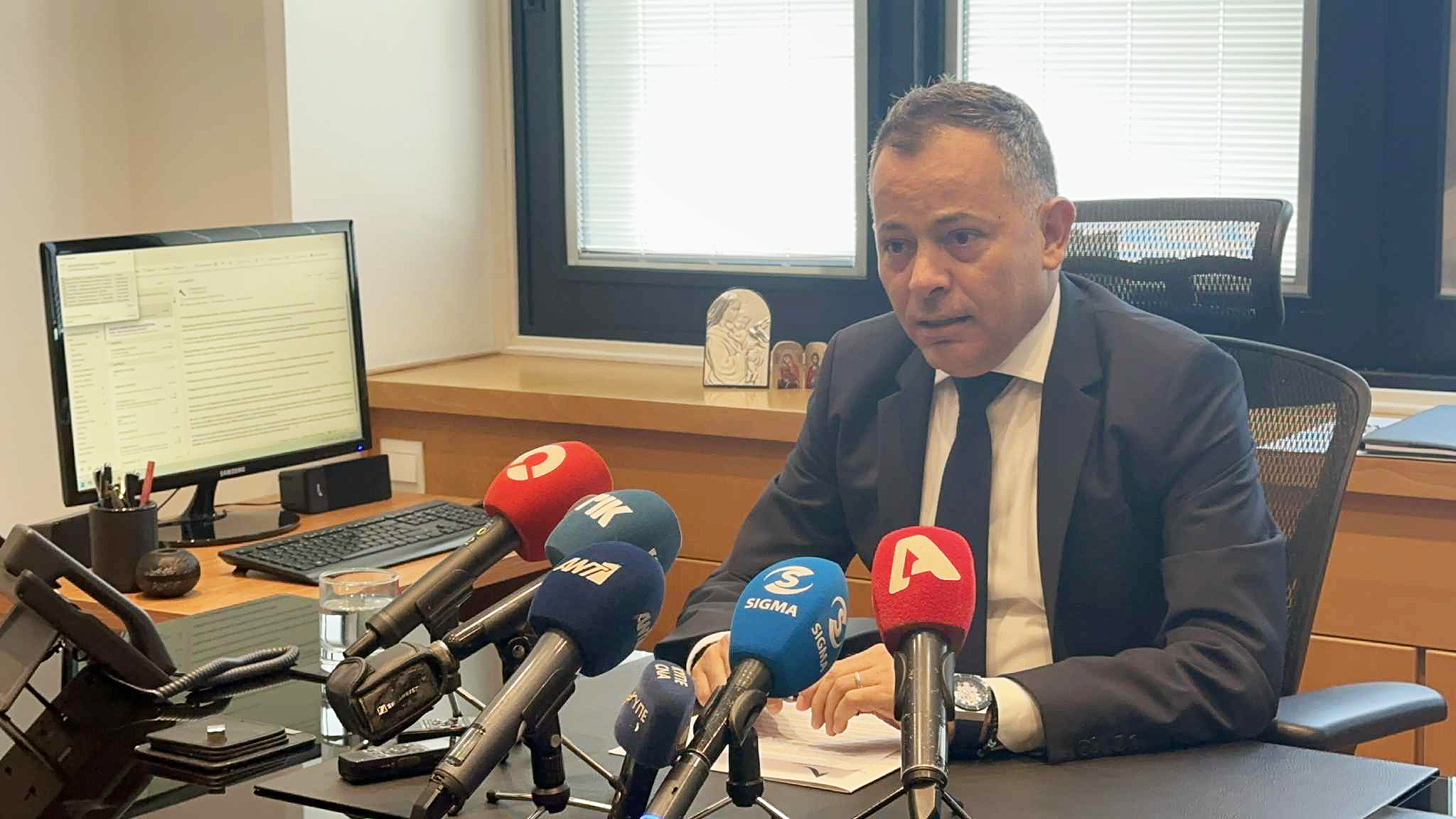The courts “must make the final decision” over whether there exists criminal liability over the alleged coverup of the death of conscript Thanasis Nicolaou, who was killed in 2005, lawyer Thanasis Athanasiou, the author of a report into the matter said on Monday.
Giving a press conference following the legal service’s decision not to file criminal charges over the young man’s death, he stressed that “we disagree with the attorney-general’s [George Savvides] position”.
“Disagreement between officials regarding the execution of justice is a phenomenon which characterises all democratic systems. The expression of our opinion is not an attempt to set up a clash with the attorney-general, nor to try the case in the court of public opinion,” he said.
He then stressed that his “consistent opinion” is that “the state’s courts must make the final decision”.
He later added that while Savvides “has the absolute right to discontinue any criminal proceedings”, he believes that “it is in the interest of justice for the courts to decide whether the acts or omissions of the seven persons we had suggested in our report are criminally punishable or not in the case of the murder of Thanasis Nicolaou”.
Athanasiou, alongside retired Greek police lieutenant Lambros Pappas, had last year been assigned by President Nikos Christodoulides to write a report into the circumstances surrounding Nicolaou’s death and its aftermath.
They had found that seven people – former state pathologist Panicos Stavrianos, two military officials, and four members of the police force – were responsible for the coverup of the murder.
However, the legal service had on Thursday decided to not file any criminal charges, writing in a letter to Nicolaou’s family that Pappas and Athanasiou “did not reveal any new facts capable of overturning the legal reasoning of our decision” not to file charges beforehand.
“There is no trace of testimony about [Stavrianos’] knowledge of there having been a murder or [his] intention to cover for the perpetrators in order to provide them with the opportunity to escape punishment,” the legal service said.
The letter also criticised the report’s conclusion.
“The offences attributed to Stavrianos are based exclusively on the assumption that the cause of death is due to a criminal act and consequently, it is suggested that he committed perjury, issued a false death certificate, and committed other related offences, having given as an undisputed fact that on the one hand, there was a criminal act, and on the other that [Stavrianos] had knowledge of it.”
Therefore, it said, “we wonder how they came to the conclusion that all the evidence reveals a serious possibility” that Stavrianos committed crimes in the aftermath of Nicolaou’s death, “since they themselves state that there is no evidence of intent or knowledge on his part as an accomplice”.
It also pointed out the fact that in February, the Supreme Court had found that prior to its ruling that Nicolaou had been strangled to death last year, the Limassol district court had made a “legal error” in not allowing Stavrianos to testify during the case.
Nicolaou’s mother Andriana Nicolaou was furious with the legal service’s decision.
“Provocatively, for 20 years, they have protected those who covered up the crime instead of bringing them to justice,” she said last week.
“To this day, the legal service, with the audacity of a thousand monkeys, protects and makes excuses for the position of [former state pathologist Panicos Stavrianos], who issued a report within ten minutes at the scene, before performing an autopsy and before the basic investigations were carried out,” she said.
“Those who murdered my child were amateurs, as has been scientifically proven, but those who covered it up and continue to cover it up even today are professionals. They have committed the most crimes, and continue to commit crimes against society, against justice, and against the Republic of Cyprus.”
Last year, the Limassol district court ruled that Nicolaou had been strangled to death, prompting President Nikos Christodoulides to appoint Athanasiou and Pappas to conduct a fresh investigation.
Stavrianos claimed after the Limassol ruling that he had been wronged, appealing it at the Supreme Court on the basis that he had not been allowed to testify in the Limassol case.
The Supreme Court rejected Stavrianos’ appeal, finding that while the Limassol court did make a “legal error” in not allowing Stavrianos to testify, it would “not serve any purpose” to annul the court’s decision “for reasons of public interest and justice”.
His final appeal at the supreme court ended without success in February, and his lawyers are now alleging that he was poorly treated during that hearing.
The Athanasiou-Pappas report was submitted to the government in March, with Andriana Nicolaou having initially requested that it not be sent to the attorney-general’s office.
However, Christodoulides informed her that the report’s submission to the attorney-general’s office is a legally required procedure.
At the time, she said that she did not expect much from the attorney-general’s office.
“The report will be studied by those who stood against us in court,” she said.
She had said then that she intended to proceed with private criminal prosecutions against those named in the report and potentially others not mentioned.
“My child was bullied by certain individuals and murdered because he saw them using drugs in the army. They cannot go unpunished,” she said.






Click here to change your cookie preferences